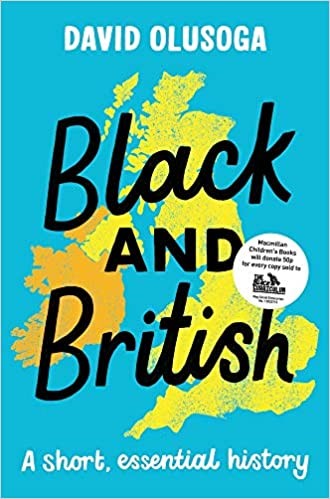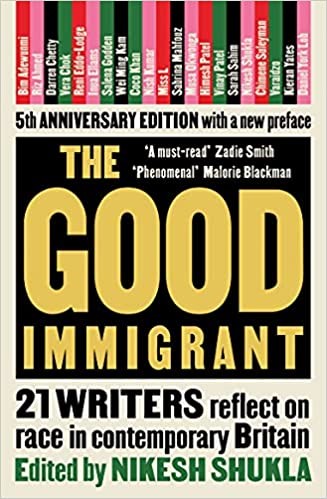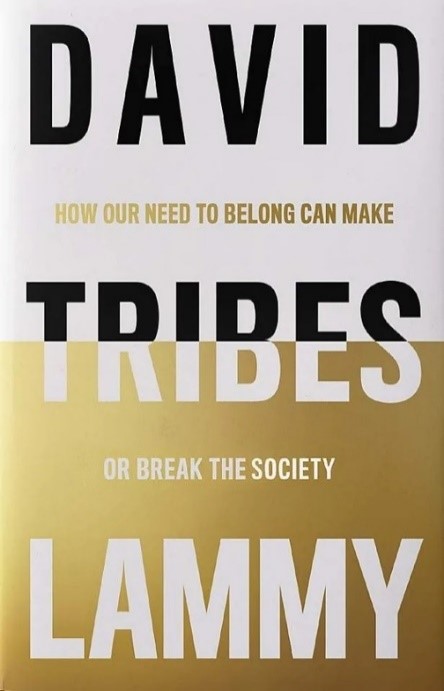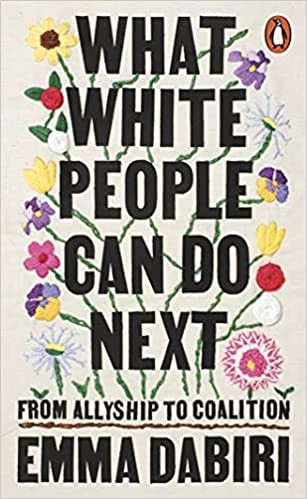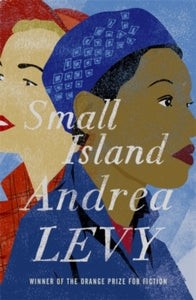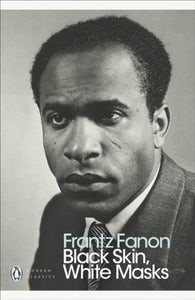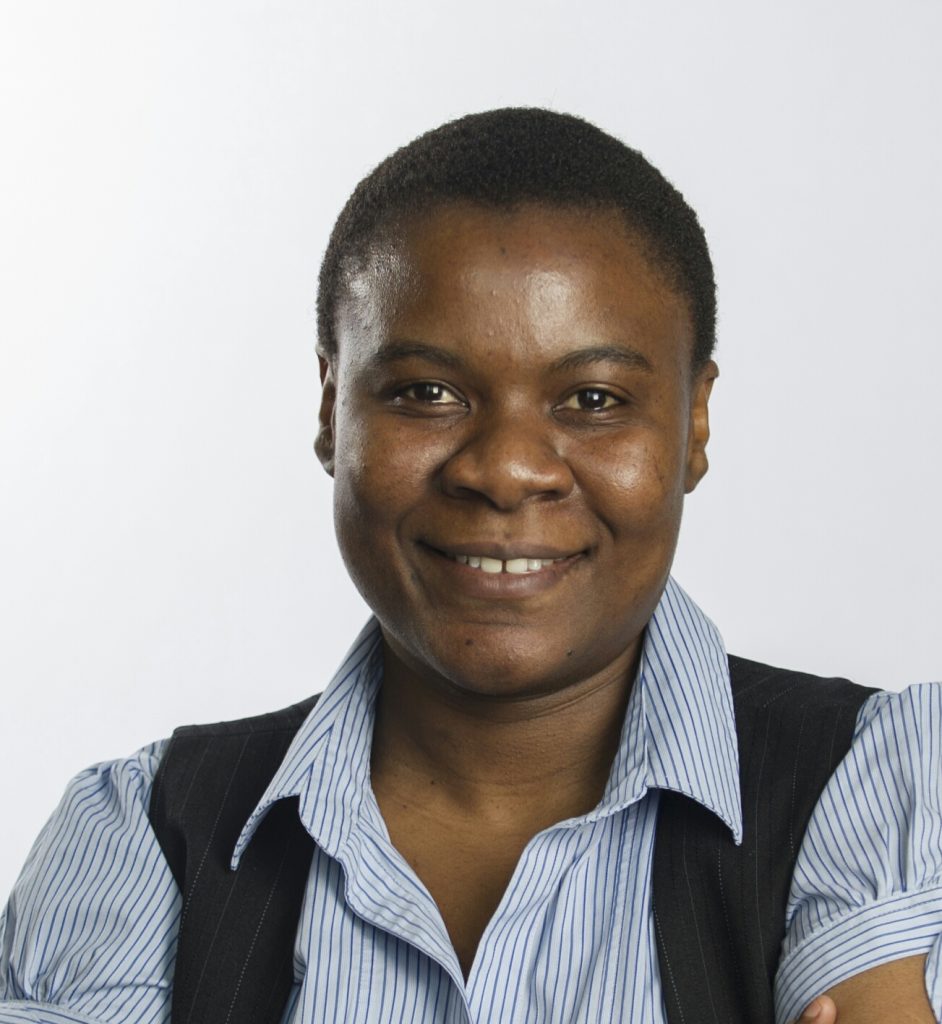

Black history Month (BHM) was first celebrated 35 years ago in the UK in October 1987 to recognise African contributions to cultural, economic, and political life in the UK. To celebrate the study of Black life and history in 2022 ARC funded PhD student Ania Couchinho, along with Research Associates Abisola Balogun- Katung and Fiona Graham have decided to focus on the important research, organisations and events across the UK that focus on the improvement of healthcare for Black people.
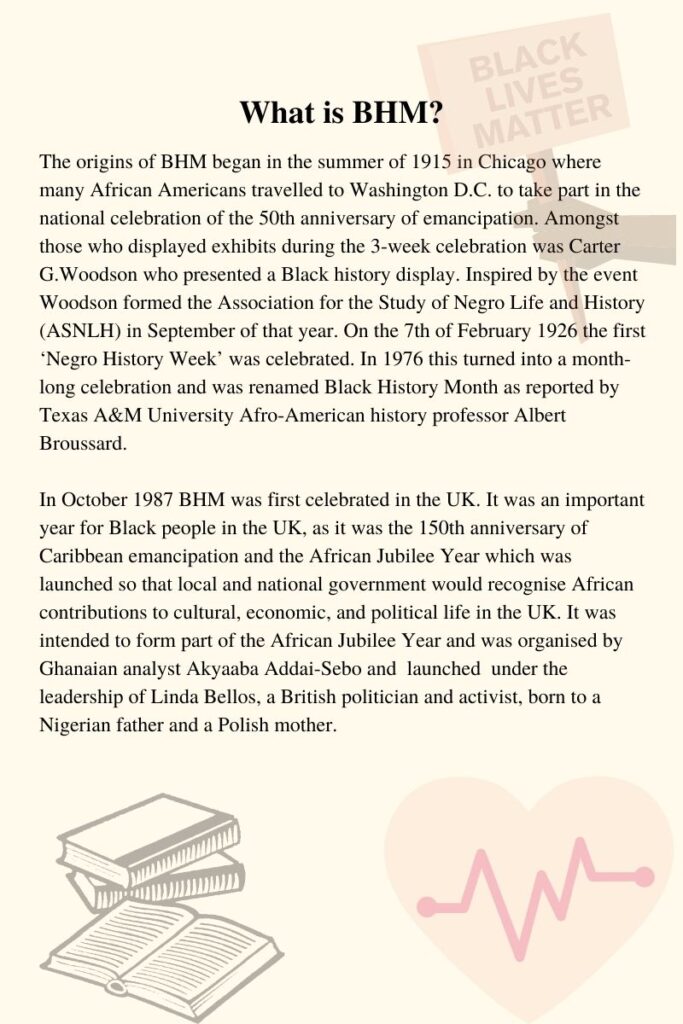

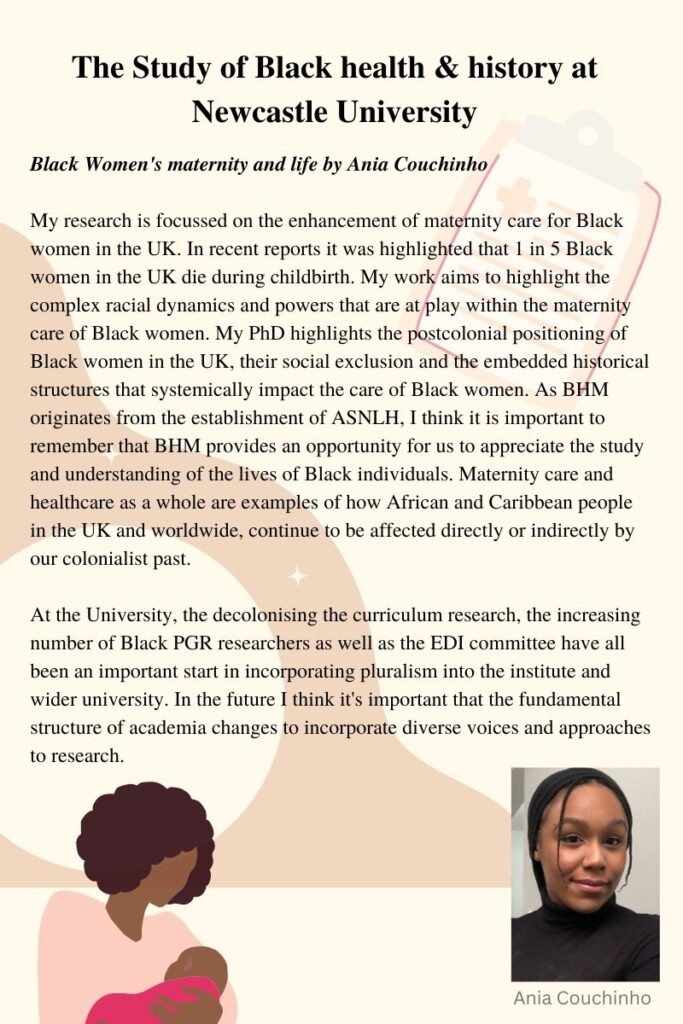

Support Black Health Organisations
Five X More is dedicated to supporting mothers with its campaigning work and recommendations. It focuses on empowering Black women to make informed choices and advocate for themselves throughout their pregnancies and after childbirth.
As a disease that disproportionately affects Black individuals, the Sickle Cell Society has been working alongside health care professionals, parents, and people living with sickle cell to raise awareness of the disorder. The Society’s aim is to support those living with sickle cell, empowering them to achieve their full potential.
The Black, African and Asian Therapy Network
BAATN are the UK’s largest independent organisation to specialise in working psychologically, informed by an understanding of intersectionality, with people who identify as Black, African, South Asian and Caribbean. Our primary focus and area of expertise is to support people from these heritages. However, we are open to other People of Colour who are affected by oppression due to the colour of their skin and global white power.
This fantastic organisation focuses on health matters which adversely affect Black men as a social group. This includes AIDs, hypertension and diabetes.
Black Minds Matter UK is a fully registered charity operating in the UK; connecting Black individuals and families with free mental health services- by professional Black therapists to support their mental health. Our vision is to make mental health topics more relevant and accessible for all Black people in the U.K., removing the stigma and remodelling the services to be relevant for the Black community.
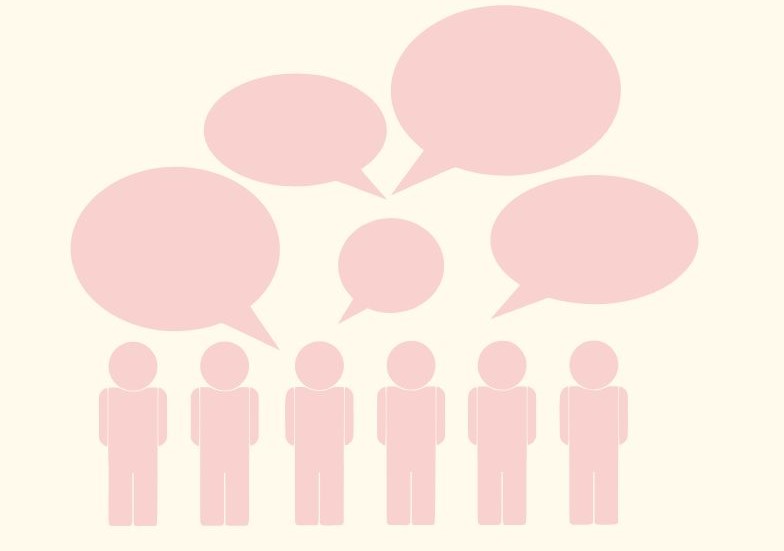
Workshops, Events & Networking Opportunities
Networks for Black researchers
CoDE Early Career Researcher (ECR) Race Network
Black Women’s Health & Wellbeing Research Network
Caribbean and African Health Network
Black people & Healthcare Workshops & Events
BFI Doc Society funded hybrid documentary by and for black men on mental health, sexual trauma and finding strength through brotherhood.
Date:Tuesday 25th October 2022
Location: Manchester
Black Women in Health Conference
This event aims to connect, inspire, educate, empower and celebrate black female healthcare professionals on becoming authentic impactful change makers and making positive impact.
Date:Saturday 15th October 2022
Location: Manchester
Nursing Narratives ‘Exposed’ Film Screening and Q & A
This is a special School of Nursing, Midwifery and Health screening of ‘Exposed’ a documentary about the experiences of racism of nurses and mid-wives before, during and after the pandemic.
Date: Friday 21st October 2022
Location: Coventry

BHM at Newcastle University & around Newcastle
Check out Abisola and Ania’s fantastic collection of books on Black History Month and support Black businesses and booksellers.
BHM Lecture: Why history matters by Professor Hakim Adi
In this lecture, Professor Adi shares his own experience of Black History Month. He reflects on the struggles, over the last 40 years, to combat eurocentrism and develop what is often termed ‘Black British History’, and discusses his new book, African and Caribbean in Britain: A History.
Date: Thursday 27th October 2022
Location: Curtis Auditorium, Herschel Building
Moving beyond the record with Rastafari
How can oral histories be used to develop more affirmative practices? This lecture explores the role of ‘self’ in relation to power and research knowledge(s). Focusing on how orality is approached within the context of Rastafari methodologies, Gray will draw on her personal and intellectual reflections from reasoning and documenting a history of the Rastafari community in Britain to suggest alternative routes to engage with life histories.
Date: Thursday 24th November 2022
Location: Curtis Auditorium, Herschel Building
At the city library will find a 100 Books by Black Authors display on Level 3 of City Library and smaller displays in some branches.
Date: October 2022
Location: Newcastle City Library
Listen to this Story! An Exhibition about children’s books and Black Britain
This exhibition will celebrate the work of key Black British children’s authors, illustrators, and editors as well as exploring how Black people and communities have been represented within the pages of stories for children. It will include illustrations, archives, and books from the collections of Seven Stories, The National Centre for Children’s Books and Newcastle University Special Collections. The exhibition will take place across two sites, on L3 of City Library and the ground floor of Newcastle University Library.
Date: Thursday 6th October till Wednesday 30th November 2022
Location: Newcastle City Library
BlackHistoryMonth.Org 2022 Listings
An array of workshops, events and trainings opportunities within and around the Newcastle area collated by the Black History Month online organisation.
Date: Varied
Location: Varied
An array of workshops, events and trainings opportunities within and around the Newcastle area collated by Eventbrite.
Date: Varied
Location: Varied
BHM Workshops & Events
BlackHistoryMonth.Org 2022 Listings
An array of workshops, events and trainings opportunities collated by the Black History Month online organisation.
Date: Varied
Location: Varied
Black History Month: Understanding the Past to Shape the Future
This talk will focus on four key things:
- Spotlighting and celebrating Black architects who paved the way.
- Discussing the impact and legacies of these individuals that often go unacknowledged.
- Exploring how the erasure of these individuals is still impacting the architectural profession today.
- Understanding how we can continue to move forward following the BLM advocacy of 2020.
Date: Wednesday 26th October 2022
Location: Zoom
Durham University Black History Month Keynote Event 2022
Organised by the University’s BAME Network and Equality, Diversity and Inclusion Unit, our keynote event will feature Prof Hakim Adi, who will speak about our Black History Month theme for 2022, Time for Change: Action Not Words.
Date: Wednesday 19th October 2022
Location: Online
Black History Month Event: Thinking Outside the Box
Minority Ethnic Group and Allies Network (MEGA) are excited to hold ‘Thinking Outside The Box – Cultivating The Shift’. Our showcase event as part of Black History Month 2022 event will be held in person, as well as live streamed. Guest speakers include: Rianna Scipio, the UK’s first black weather presenter, and now International Authenticity and Relationship Consultant.
Ballaz in The Middle, two ex-professional NFL football players, Discussion will be centred around equality diversity and inclusion, whilst raising the awareness of important topics such as; good mental health, wellbeing, resilience, mentoring and outreach
Date: Friday 14th October 2022
Location: Online
Black History Month: Do our children need more Black history lessons?
What must change for Black pupils to feel they fully belong in our education system and wider society? How can we teach pupils the full story of how modern Britain was created? Joseph Harker, the Guardian’s senior editor for diversity and development, chairs our panel of speakers, which includes Jeffrey Boakye, former schoolteacher and author of I Heard What You Said; Lavinya Stennett, founder and chief executive of The Black Curriculum; and Desta Haile, deputy director of the Royal African Society.
Date: Monday 24th October 2022
Location: Online (paid event)
